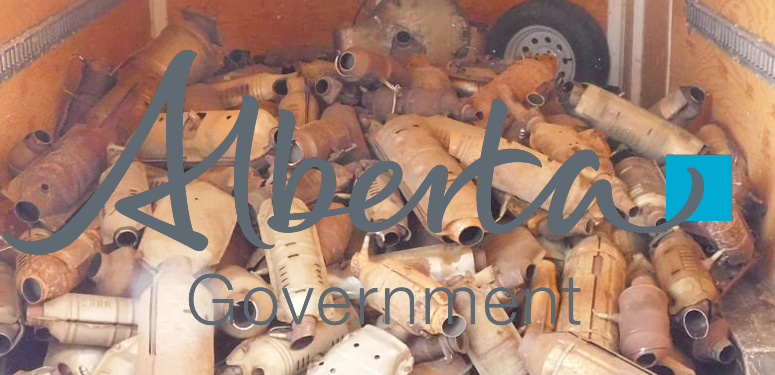Edmonton, Alberta — The Protecting Alberta Industry from Theft Act is now more than two years old, and while the legislative changes have made the process of buying catalytic converters more stringent, Albertan auto recyclers are voicing concerns that such sales are still happening regularly—albeit, under the table and off the books.
A recent CBC report featured Calgary-area catalytic converter dealer and owner of Big House Converters, Eric Grand-Maison, who feels that the province’s new law, first introduced in November of 2020, simply misses the mark.
“It hasn’t done anything to stop the theft. Theft has only increased, not decreased,” he said.
The act, which was introduced as a way to curb the theft of the highly sought-after part, requires that all auto recyclers and scrap metal dealers report all sales of catalytic converters to local law enforcement, collect copies of the buyer’s photo ID, and accept only traceable forms of currency, such as cheques or e-transfers.
“We were doing an average of about 5,000-10,000 converters a month, and then now we’re probably doing about one [thousand] to 2,500 converters a month,” said Grand-Maison.
“It’s all going underground because we can’t pay cash.”
The Calgary Police Service reported that 2,754 catalytic converter thefts took place between the beginning of this year and October, as compared to a total of 1,560 thefts for all of 2021. Of course, both of these figures are representative of thefts reported after the implementation of the act, however, they do still point to the continued prevalence of this crime.
Additionally, 8,035 catalytic converter transactions were reported through the first nine months of 2022 worth $17.2 million.
Otherwise left in a position of relative helplessness, many in the Albertan auto industry have added new services to their business repertoire to help consumers deter what is typically a very simple theft to pull off.
Ravi Chandra of Minute Mufflers in Calgary told the CBC that he has started installing wire cages around the catalytic converters of customer’s cars.
“Anything to make it a little harder, a little longer for them to steal,” he said.
“If they want it, they’re gonna get it. But if you’re in the mall, and it takes a few extra minutes or seconds to take it, they might just move on to the next vehicle.”
For its part, Grand-Maison’s business opts for the laser engraving method, which sees a vehicle’s VIN permanently engraved on the catalytic converter in order to make it easier to track in the event of a theft.
As well, he says he would like to see pressure put on those who sell catalytic converters via online marketplaces, in ads that often appear suspicious even to the uninformed.





















